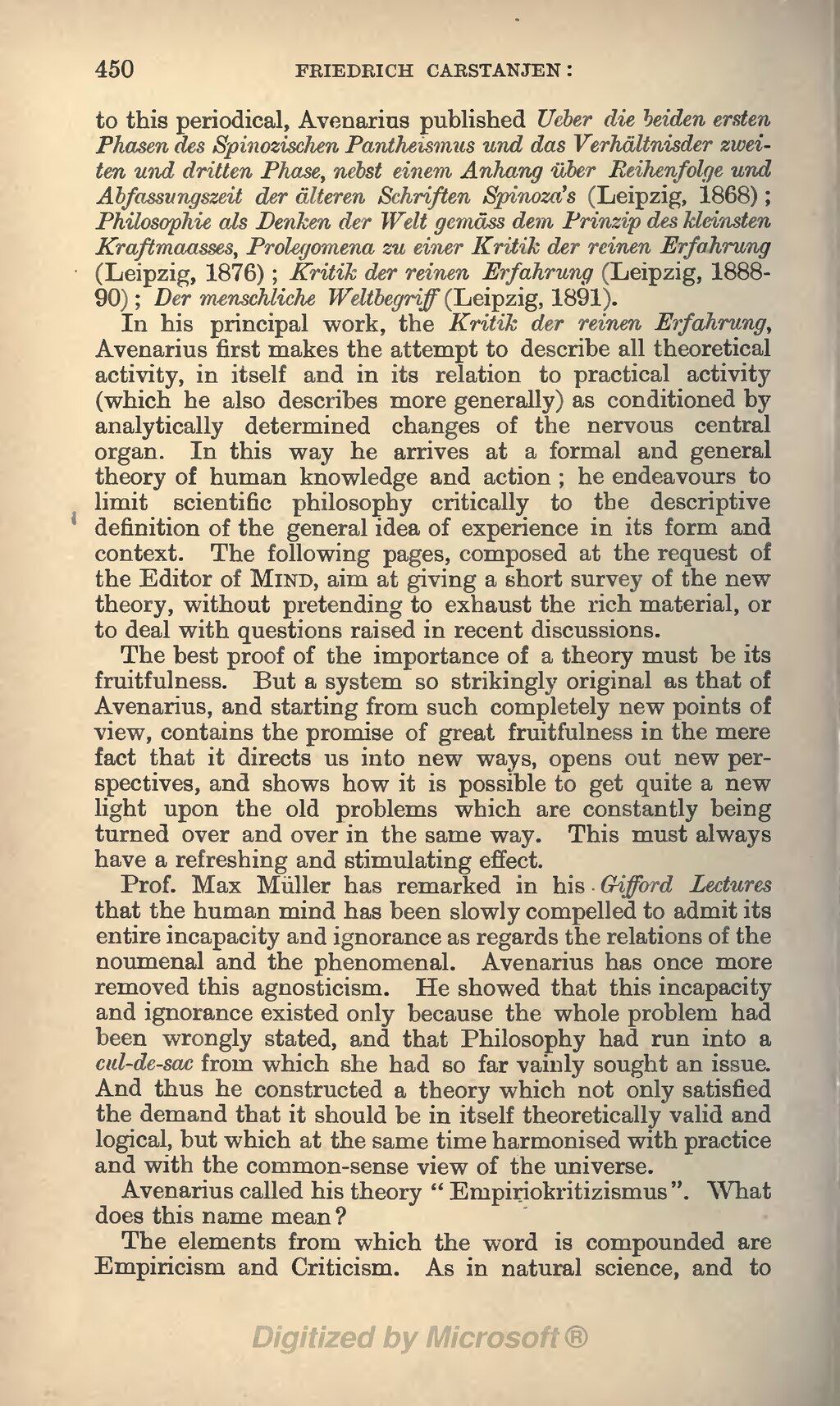to this periodical, Avenarius published Ueber die beiden ersten Phasen des Spinozischen Pantheismus und das Verhältnisder zweiten und dritten Phase, nebst einem Anhang über Reihenfolge und Abfassungszeit der älteren Schriften Spinoza’s (Leipzig, 1868); Philosophie als Denken der Welt gemäss dem Prinzip des kleinsten Kraftmaasses, Prolegomena zu einer Kritik der reinen Erfahrung (Leipzig, 1876); Kritik der reinen Erfahrung (Leipzig, 1888-90); Der menschliche Weltbegriff (Leipzig, 1891).
In his principal work, the Kritik der reinen Erfahrung, Avenarius first makes the attempt to describe all theoretical activity, in itself and in its relation to practical activity (which he also describes more generally) as conditioned by analytically determined changes of the nervous central organ. In this way he arrives at a formal and general theory of human knowledge and action; he endeavours to limit scientific philosophy critically to the descriptive definition of the general idea of experience in its form and context. The following pages, composed at the request of the Editor of Mind, aim at giving a short survey of the new theory, without pretending to exhaust the rich material, or to deal with questions raised in recent discussions.
The best proof of the importance of a theory must be its fruitfulness. But a system so strikingly original as that of Avenarius, and starting from such completely new points of view, contains the promise of great fruitfulness in the mere fact that it directs us into new ways, opens out new perspectives, and shows how it is possible to get quite a new light upon the old problems which are constantly being turned over and over in the same way. This must always have a refreshing and stimulating effect.
Prof. Max Müller has remarked in his Gifford Lectures that the human mind has been slowly compelled to admit its entire incapacity and ignorance as regards the relations of the noumenal and the phenomenal. Avenarius has once more removed this agnosticism. He showed that this incapacity and ignorance existed only because the whole problem had been wrongly stated, and that Philosophy had run into a cul-de-sac from which she had so far vainly sought an issue. And thus he constructed a theory which not only satisfied the demand that it should be in itself theoretically valid and logical, but which at the same time harmonised with practice and with the common-sense view of the universe.
Avenarius called his theory “Empiriokritizismus”. What does this name mean?
The elements from which the word is compounded are Empiricism and Criticism. As in natural science, and to
